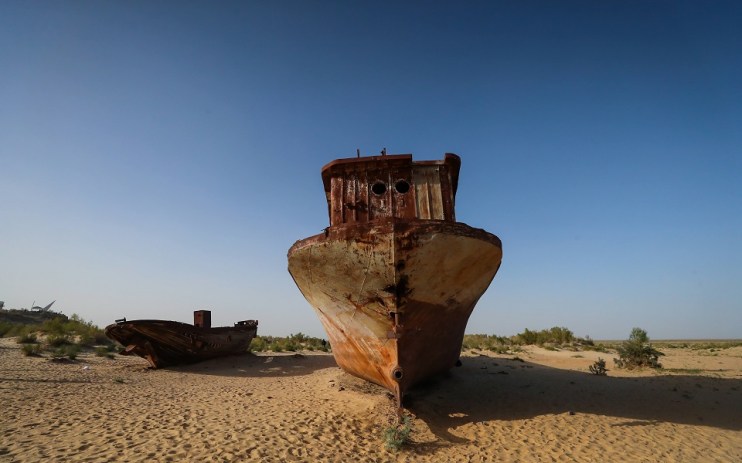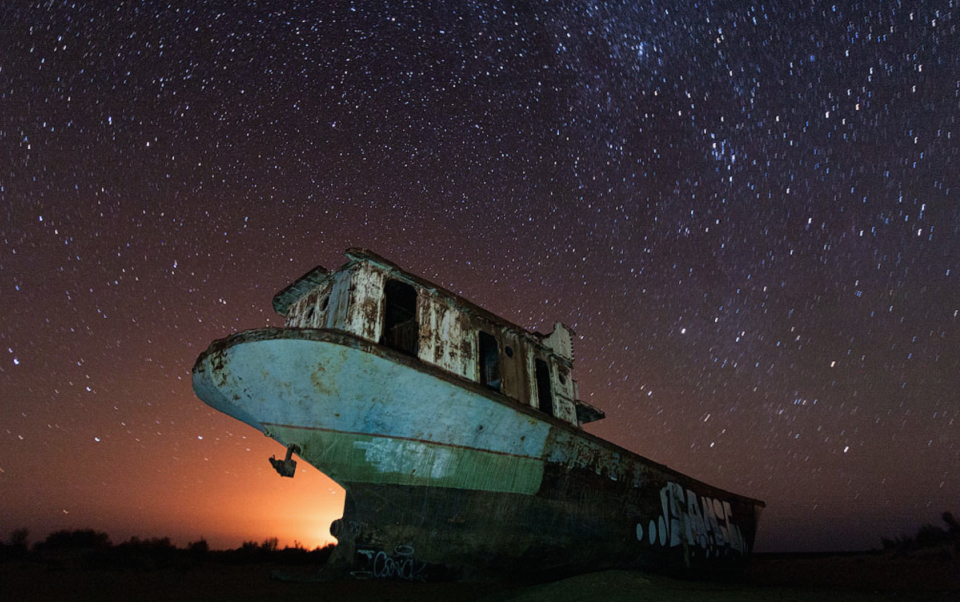Why Karakalpakstan in Uzbekistan is your next adventure holiday destination

After writing the first official guidebook, Sophie Ibbotson tells us why Karakalpakstan is the new destination adventure holiday seekers need to book
‘‘How can you write a guidebook about Karakalpakstan? There’s nothing for tourists here!” Those words will echo a long time in my ears, and they must rate amongst the last things a guidebook writer wants to hear. When even the locals are dismissive of a place, you wonder if you’ve bet on the wrong horse. If you don’t think you’ve previously heard of Karakalpakstan, you’re not alone.
It is an autonomous republic in western Uzbekistan, bordering Kazakhstan and Turkmenistan; a predominantly desert region twice the size of Scotland but with a population of just 1.8 million people. The infamous man-made environmental disaster that is the shrinking of the Aral Sea, complete with its graveyard of skeleton ships, might well have registered on your radar, though, so even if you didn’t realise it, you may know something about Karakalpakstan after all. A desert and an environmental catastrophe do not a tourist destination make, however, and if that were all Karakalpakstan had to offer, the aforementioned guidebook would be a woefully short and depressing read.
Read more: El Fuerte is proof that Marbella is now a luxury destination
Uzbekistan Airways flies direct from London to Tashkent with an onward connection to Nukus, the capital of Karakalpakstan. Nukus is a planned city of mostly grey concrete and marble, but flashes of colour — monumental Soviet-era mosaics, the blue and turquoise tiles of the mosque, and even an incongruous pink British phone box — distract the eye. The few tourists who do come here are drawn by the Savitsky Museum, which is nicknamed the Desert of Forbidden Art, a nod to its priceless trove of pieces made by artists purged by Stalin. The museum’s Russian Avant Garde collection is the second largest in the world and it includes sketches made in the gulags, artworks rescued from hiding places, and paintings by artists whose other known works have all been lost or destroyed.

The unexpected juxtaposition of nature and culture is Karakalpakstan’s unique selling point, and one which the government, international development agencies, and local entrepreneurs are working together to exploit. This is a region with little industry, little infrastructure, and where agricultural productivity is an uphill struggle, so tourism — and ecotourism in particular — offers a valuable opportunity to grow the economy, create jobs, and finance conservation. In Nukus I met Joseph Bull, who leads ‘Resurrection Island: Enterprise, Conservation and Development around the Aral Sea’, a project funded by the UK’s Darwin Initiative. Resurrection Island was the site of Aralsk 7, an infamous Soviet bioweapons base which was abandoned after the collapse of the USSR and cleaned up with US support in the early 2000s.
Joe and his team are now working with local partners to make the island the centrepiece of the Aralkum National Nature Park, Uzbekistan’s newest national park. They’re supporting local scientists and rangers to study and protect local wildlife, including the island’s critically endangered saiga antelope population; providing training for village families wanting to open homestays; and are working with local tour operators to explain and promote what this remote place has to offer and to bring investment and tourists in. There are already signs that it is working: the first yurt camp on the eastern shore of the Aral Sea opened in 2023.
I took a Land Cruiser and drove north from Nukus across to the western side of the Aral Sea where dramatic cliffs known as the Aral Sea Canyons (though they aren’t actually canyons at all) drop away to the water. Although the Aral Sea is a fraction of the size it was in the 1960s when it was the fourth largest lake in the world, there is still some water here. At least for now. On the way we skirted Barsakelmes, the salt flat whose name can be translated as “the place of no return”.
Read more: As Denzel Washington leads The Equalizer 3 we ask: Why are all the action heroes so old?
We stopped at the Beleuli Caravanserai, a reminder that Silk Road caravans once passed this way en route to the Caspian Sea; and we paused to pay our respects at the shrines of Hakim Ata and Jantemir Ishan, early Muslim saints whose graves still draw Sufi pilgrims. We passed herds of camels grazing on the desert’s scrubby plants, watched a flamboyance of flamingos in the wetlands of Sudochye, and saw dozens of stone circles and engraved headstones marking the final resting places of Karakalpak nomads. There are ancient fortresses and watch towers, too.
There’s no point trying to get to the Aral Sea in a hurry: the paved roads end long before you reach the shore and then it’s a case of driving on sandy tracks. The journey, slow as it is, is key to the experience, and the openness of the landscape, the light, and the sense of peace is part of its beauty. We drove up to the Bes Qala Yurt Camp in the late afternoon when the sun was already starting to sink towards the water. The sky was pink, and had you told me that the Aral Sea was a mirage, I’d have believed you.

The yurts are high on the cliff and at the rocks’ edge a long table was set for dinner, a simple but hearty meal in an extraordinary location. The few other guests conversed in a babble of different languages. But once darkness fell, everyone retreated to their yurts and it was silent. It was the inkiest black night I’ve ever seen, but breaking out of the blackness were first a few pinpricks and then the Swarovski-like shower of a billion stars, the sweep of the Milky Way visible brightly to the naked eye.
I didn’t sleep for hours, I just stood watching in awe the magnificence of the sky and the sparkles of light mirrored by the Aral Sea.
Visit Karakalpakstan for your adventure holiday
Peopletravel (people-travels.com) offers several itineraries in Karakalpakstan, including the 12-day Eco Tour in Uzbekistan (from £735pp) and two-day Aral Sea Tour (from £160pp). Karakalpakstan by Sophie Ibbotson and Stephanie Adams was published by Bradt Travel Guides in June 2023 and costs £17.99. It is available on request from all good bookstores. Airlines fly to Brunei from around £1,400.